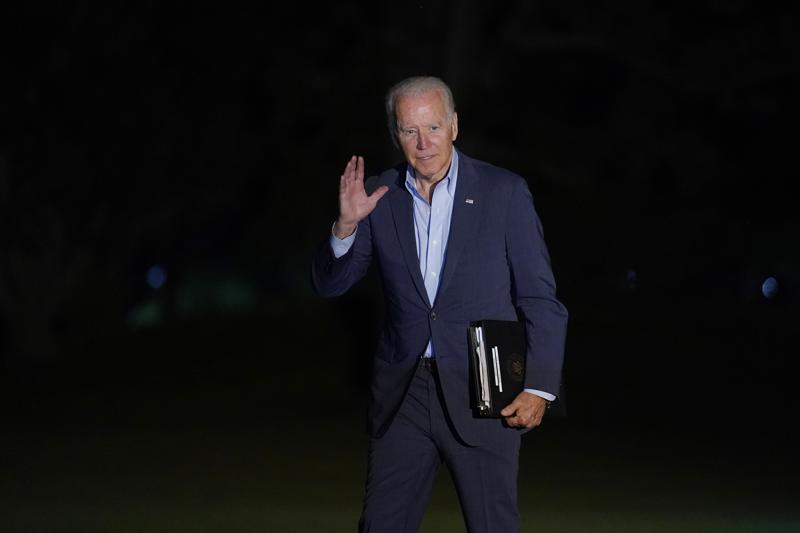The Biden administration on Sunday upheld a Trump-era rejection of nearly all of China’s significant maritime claims in the South China Sea. The administration also warned China that any attack on the Philippines in the flashpoint region would draw a U.S. response under a mutual defense treaty.
The stern message from Secretary of State Antony Blinken came in a statement released ahead of this week’s fifth anniversary of an international tribunal’s ruling in favor of the Philippines, against China’s maritime claims around the Spratly Islands and neighboring reefs and shoals. China rejects the ruling.
Advertisement
Ahead of the fourth anniversary of the ruling last year, the Trump administration came out in favor of the ruling but also said it regarded as illegitimate virtually all Chinese maritime claims in the South China Sea outside China’s internationally recognized waters. Sunday’s statement reaffirms that position, which had been laid out by Trump’s secretary of state, Mike Pompeo.
“Nowhere is the rules-based maritime order under greater threat than in the South China Sea,” Blinken said, using language similar to Pompeo’s. He accused China of continuing “to coerce and intimidate Southeast Asian coastal states, threatening freedom of navigation in this critical global throughway.”
“The United States reaffirms its July 13, 2020 policy regarding maritime claims in the South China Sea,” he said, referring to Pompeo’s original statement. “We also reaffirm that an armed attack on Philippine armed forces, public vessels, or aircraft in the South China Sea would invoke U.S. mutual defense commitments.”
Article IV of the 1951 U.S.-Philippines Mutual Defense Treaty obligates both countries to come to each other’s aid in case of an attack.
Prior to Pompeo’s statement, U.S. policy had been to insist that maritime disputes between China and its smaller neighbors be resolved peacefully through U.N.-backed arbitration. The shift did not apply to disputes over land features that are above sea level, which are considered to be “territorial” in nature.
Although the U.S. continues to remain neutral in territorial disputes, it has effectively sided with the Philippines, Brunei, Indonesia, Malaysia and Vietnam, all of which oppose Chinese assertions of sovereignty over maritime areas surrounding contested South China Sea islands, reefs and shoals.
China reacted angrily to the Trump administration’s announcement and is likely to be similarly peeved by the Biden administration’s decision to retain and reinforce it.
China has rejected the tribunal’s decision, which it has dismissed as a “sham,” and has refused to participate in arbitration proceedings. It has continued to defy the decision with aggressive actions that have brought it into territorial spats with Vietnam, the Philippines, and Malaysia in recent years.
China claims almost all of the South China Sea and routinely objects to any action by the U.S. military in the region. Five other governments claim all or part of the sea, through which approximately $5 trillion in goods are shipped every year.











